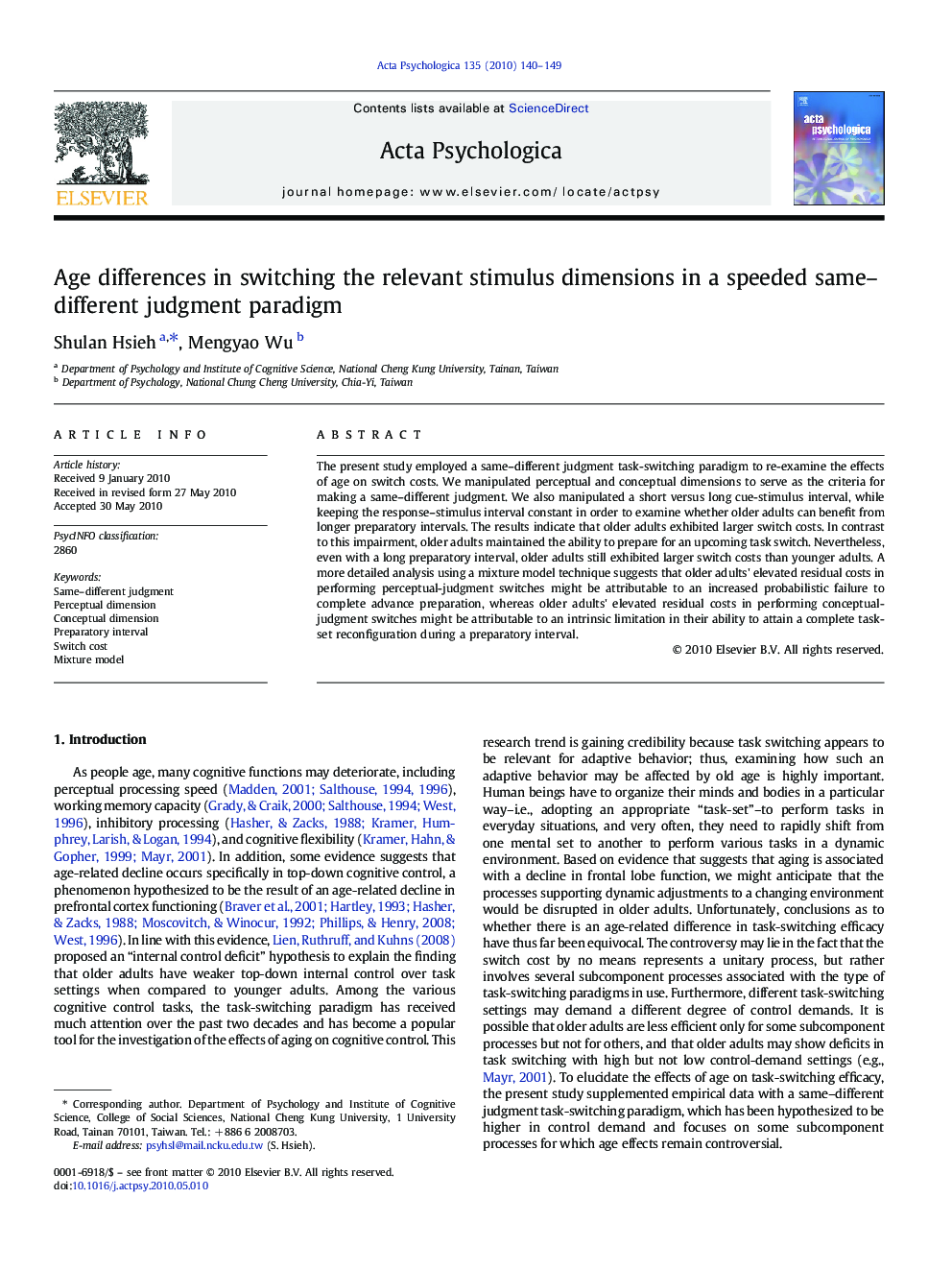| Article ID | Journal | Published Year | Pages | File Type |
|---|---|---|---|---|
| 920251 | Acta Psychologica | 2010 | 10 Pages |
The present study employed a same–different judgment task-switching paradigm to re-examine the effects of age on switch costs. We manipulated perceptual and conceptual dimensions to serve as the criteria for making a same–different judgment. We also manipulated a short versus long cue-stimulus interval, while keeping the response–stimulus interval constant in order to examine whether older adults can benefit from longer preparatory intervals. The results indicate that older adults exhibited larger switch costs. In contrast to this impairment, older adults maintained the ability to prepare for an upcoming task switch. Nevertheless, even with a long preparatory interval, older adults still exhibited larger switch costs than younger adults. A more detailed analysis using a mixture model technique suggests that older adults' elevated residual costs in performing perceptual-judgment switches might be attributable to an increased probabilistic failure to complete advance preparation, whereas older adults' elevated residual costs in performing conceptual-judgment switches might be attributable to an intrinsic limitation in their ability to attain a complete task-set reconfiguration during a preparatory interval.
